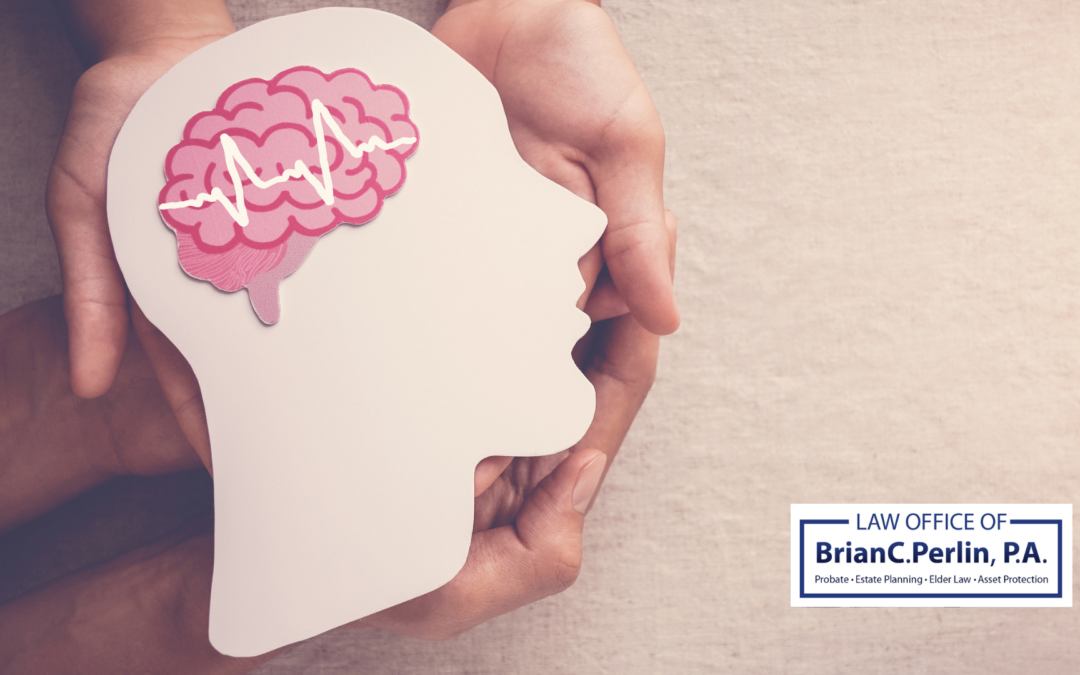Do you have an aging parent living in Florida facing Alzheimer’s Disease? Was your aging parent recently diagnosed? Do you know what Alzheimer’s Disease is and what it may mean for your aging parent? Alzheimer’s Disease is a type of dementia that can potentially cause problems with the memory, thinking, cognition, and behavior of your aging parent. Often symptoms, but not always, develop slowly and worsen over time. The end-stages of the disease can become life-threatening.
Although there is not yet a cure, early detection of Alzheimer’s Disease offers the best chance for effective treatment and improved quality of life. Memory loss is the most widely recognized early warning sign, and knowing what to do about it could make all the difference in the treatment options. Because this month is Alzheimer’s Awareness Month we want to focus on Alzheimer’s Disease, as well as, share resources and ideas for you and your aging parent.
There are three important steps we would like to share with you that you may take when working with your aging parent who may have Alzheimer’s. Keep them in mind when you are with your aging parent who may have potential Alzheimer’s Disease and dementia-related memory issues.
1. You should assess your aging parent’s situation early. Have you observed any changes in memory, thinking, or behavior? Have you been concerned that your aging parent is doing or not doing something? Has anyone else noticed these same changes that you are seeing?
You should begin to write down your concerns now because over time it can help establish the difference between what could be Alzheimer’s Disease and what may be just the normal aging process. Remember, as a person ages a certain amount of memory loss and confusion is to be expected. In addition, there may be other factors that may affect older adults as well, for example: prescription medications, stress, and other health conditions.
Do not hesitate to be proactive and speak with a medical professional or qualified health care provider in regard to your aging parent. Researching memory loss, especially as it relates to Alzheimer’s Disease, is an excellent idea.
2. You should talk to your aging parent about memory concerns. You need to let your aging parent know your concerns. However, this is easier said than done. You might begin by talking with other family members and raising your concerns. Then have your aging parent, yourself and your family meet together to discuss concerns and how to best move forward. All actions and conversations should be carried on with compassion, understanding and support.
3. You and your aging parent should reach out for help. A crucial first step is to schedule a doctor’s evaluation. Then your next step should be to reach out to the many support organizations for Alzheimer’s Disease, memory loss assistance programs, and caring professionals. These groups and professionals can help you and your aging parent with daily challenges, getting to medical appointments, and important legal and financial planning items. In addition, we highly recommend you see a Florida elder law attorney who can help you and your aging parent plan for the future to determine what type of long-term care may be needed in the future and how you may be able to afford it.
We know how difficult this conversation can be and want to help. We know you may have questions about this, and many other, issues. At the Perlin Estate Planning & Probate our credentials enable us to provide a multi-disciplinary approach to our legal services. By building relationships with our clients, we are also able to understand each client’s needs and desires, and we support such goals through thoughtful, comprehensive planning techniques. We encourage you to contact us and schedule a meeting.
